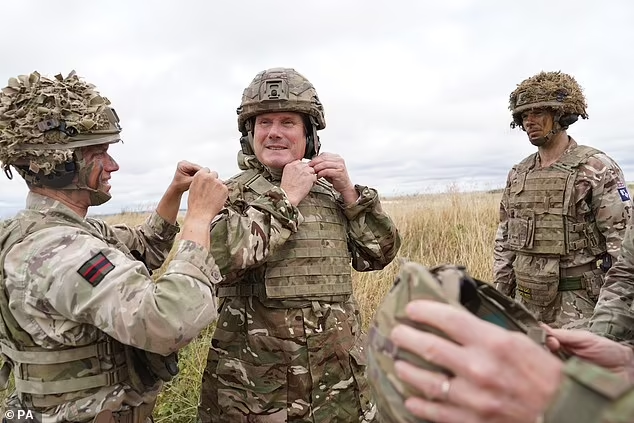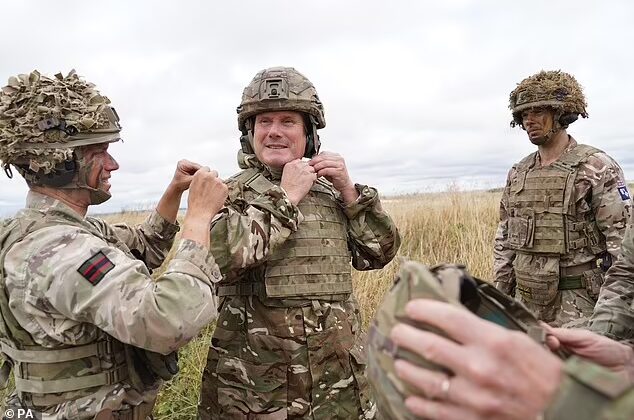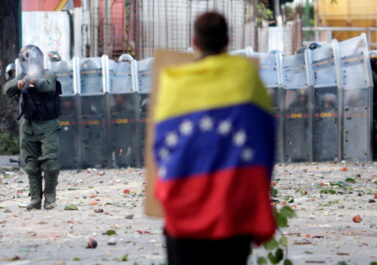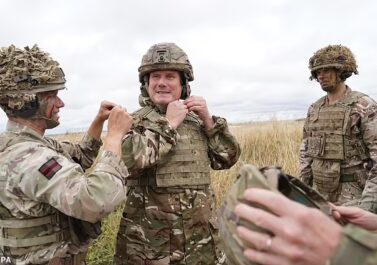
This summary was written for an internationalist summer camp in France in August 2025, comments welcome. Hopefully we will see the development of a working class anti-militarism, as expressed by small groups of workers in Munich or Grenoble. We encourage fellow workers to engage in a collective analysis of the impact that the current drive for militarism has in their sectors.
Since Trump’s tariff war, the UK state is even more desperate to secure its crumbling economic base by showing off as a minor military partner, both to the EU, when it concerns Ukraine, and to the US, when it concerns the Middle-East. The focus of the latter was to obtain a favourable trade agreement by submission.
*** Current military involvement
In Ukraine, the Starmer government continues the previous Tory government’s hawkish stand. Shortly after the war started, Boris Johnson, as an unofficial representative of the UK, put pressure on Zelensky ‘not to give in’ and, as the UK is one of the main financial supporters of Ukraine, significantly undermined the peace talks. Starmer was one of the first European statesmen to announce the possibility of deploying troops of a ‘coalition of the willing’ in Ukraine in future, while the UK military continues to train Ukrainian personnel. The UK pushes for a NATO revival, while the EU is debating its own standing army. There are also separate defence agreements between UK and Germany in the making and current negotiations between the UK and France on nuclear cooperation – and how ‘to defend the common borders against migrants’.
In the Middle East, the UK army under Sunak took part in the US bombardment of Houthi positions in January 2024 in ‘self-defence’. Under Starmer’s leadership, the UK has continued spy flights for Israel, allowed the US military to operate through its Cyprus airbase, and launched fighter jets in support of Israel during Iran’s recent strikes. (as a footnote: The Starmer leadership used the ‘fidelity’ to Israel and Corbyn’s ‘outdated pacifism’ to purge the party of its left fringe – this partly explains the particularly aggressive tone of the government’s militarism.)
*** Ideological militarisation
In June 2025, at a low point of popularity, the government fired up the war propaganda machine. Starmer announced that the UK’s armed forces must move to “war-fighting readiness” over the coming years, the UK faces a “more serious and immediate” threat than anytime since the Cold War, and “every citizen must play their part“. UK foreign affairs adviser Fiona Hill (previous advisor to Trump) said on the front page of main UK newspapers, that the “UK is at war with Russia”. The head of Britain’s armed forces Adm. Tony Radakin warned that the world stands at the cusp of a “third nuclear age”. These scenarios are meant to shift public opinion – in a survey from early 2024, only 7% of the 18 to 40 year olds said they would volunteer for the army if a world war broke out; 21% would not volunteer, but serve if conscripted; and 38% would refuse to be conscripted.
*** Defence spending
In February 2025, Starmer announced:
“the biggest sustained increase in defence spending since the Cold War. (…) We must use the process of getting to 3% of our national income spent on defence to fundamentally rebuild British industry, use our investment in military spending to create new jobs and apprenticeships in every part of the country. And that’s why last night I announced a deal that perfectly symbolises the new era. A partnership with Ukraine that allows them to use £1.6 billion of UK export finance to buy 5,000 air defence missiles manufactured in Belfast. That means UK jobs, UK skills, UK finance pulling together for our national interest, putting Ukraine in the strongest possible position…”
As part of this new strategy, the government announced a £1.5 billion investment in at least six new munitions and energetics factories, which it claims will support over 1,800 skilled jobs in the UK defence sector (HM Government, 2025). In addition the UK wants to build up to 12 attack submarines as part of AUKUS programme and a £15 billion investment set out for the UK’s nuclear warhead programme. Allegedly 400,000 jobs in Britain are attached to the arms industry. Unsurprisingly, all trade unions are unapologetically in favour of the increase in spending. The biggest union across the manufacturing sector, Unite, titled their press release in February 2025:
“Increased defence spending welcome but promises on UK jobs must be real”.
These plans have to be seen on the background of a teetering UK economy. In April 2025 the government passed a ‘Steel Act’ to nationalise parts of the British steel industry – none of which is actually not that “British” anymore, as there is significant ownership of Indian and Chinese companies. For example, the Act wanted to prevent a Chinese company from closing down a blast furnace in Lincolnshire through nationalisation, to defend ‘national interest’. There have been previous disputes around Chinese investments, amongst others in micro-chip, battery and power plants, with US politicians intervening to prevent further economic ties.
In that sense the picture that Draghi (ex-president of the European Central Bank) paints for Europe also applies to the UK:
“Of all the major economies, Europe is the most exposed to [geopolitical] shifts. We are the most open: our trade-to-GDP ratio exceeds 50 percent, compared with 37 percent in China and 27 percent in the United States. We are the most dependent: we rely on a handful of suppliers for critical raw materials and import over 80 percent of our digital technology. We have the highest energy prices: EU companies face electricity prices that are 2–3 times higher than those in the United States and in China. We are severely lagging behind in new technologies. And we are the least ready to defend ourselves: only ten member states spend more than or equal to 2 percent of GDP on defense, in line with NATO commitments.”
*** Social contradictions
To hit the 3% rearmament target, the UK state would have to find an extra £13bn. Currently, the government had to perform various U-turns when it came to the austerity measures that would contribute to the financing of rearmament, e.g. initially they wanted to give NHS staff only 2.8% pay increase, but they topped it up to 3.6%, and the planned cuts of disability allowance have been softened after significant protests. The peace movement itself is relatively weak, but there is considerable discontent with the austerity measures and with the intensification of legal repression against protests, such as the declaration of Palestine Action as a terrorist organisation. Recent surveys say that Labour would currently get only 15% of votes.



